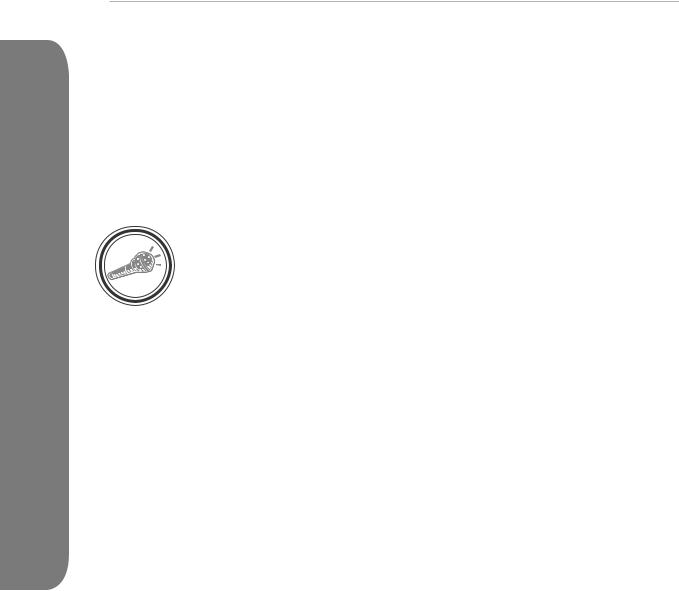
yastrebova_Part_2
.pdf
 Английский язык для международников и регионоведов. Часть II
Английский язык для международников и регионоведов. Часть II
CHECK YOURSELF
1. A. Divide the verbs into two groups — those that can be used in two passive structures and those that can be used only in one passive structure:
Promise, announce, dictate, grant, teach, show, describe, give, explain, point out, pay, refuse, propose, ask, offer, teach, devote, suggest, send
Put the sentences into the Passive. Give two variants where possible.
1.Havana’s American Embassy has granted Ramon a visa.
2.The teacher explained the rules to the students in English.
3.They described Prague to him as “the most beautiful city in Europe”.
4.In exchange for information they promised the captured soldier medical treatment.
B. What prepositions do the following verbs take (some of them can take more than one)?
Comment, laugh, rely, shout, look, operate, think, deal, discriminate, mock, talk, listen, call, accuse
Add prepositions where necessary:
1.Teenagers are often discriminated because of their age and appearance.
2.A Palestinian soccer team has been refused entry into Great Britain.
3.What good is a song that is never heard or a story that is never listened?
4.The official statue of Lady Thatcher, which was unveiled yesterday, is widely commented in the papers.
5.Your complaint will be looked within five days.
2. Work in pairs. Translate the following word-combinations without consulting the Vocabulary List.
affordable dental services |
to afford a vacation in Thailand |
to damage one’s reputation |
to suffer damage from a hurricane |
to face north |
to have nothing in common |
to make progress |
a remarkable career |
a joint venture |
a gap between theory and practice |
to keep in good shape |
current situation |
to be choosy about one’s clothes |
to do the washing up |
to make up 30% of the population |
not to make out a word |
объединить усилия |
национальная валюта |
сформировать чьи-л. взгляды |
присоединиться к забастовке |
столкнуться с проблемой |
широкий ассортимент обуви |
пробел в чьем-л. образовании |
записаться в библиотеку |
выбирать между карьерой и учебой |
распространенная ошибка |
быть не в форме |
в этом нет ничего примечательного |
курение наносит вред здоровью |
на первый взгляд |
конфликт поколений |
совместное заявление |
заниматься спортом |
сколотить состояние |
3. A. What is the rule for the use of articles with such adjectives as old, young, rich, poor, etc.? Find examples illustrating the rule in the texts.
a) The Economist reports that in the U.S. “the gap between the rich and the poor is bigger than in any other advanced country.” And it’s growing. This widening gap can be seen virtually everywhere
Chapter 4. Unit 7. Better to Be Wealthy and Healthy
51

Chapter 4. Unit 7. Better to Be Wealthy and Healthy
 Английский язык для международников и регионоведов. Часть II
Английский язык для международников и регионоведов. Часть II
we look—in America; within other countries, even those which used to be characterised by a high degree of equality (in particular, Japan, South Korea, and China); and between rich and poor countries in the world at large.
b) The Teen Empowerment Academy is an eight-week residential training and employment program, created and led by the blind, offering blind students an opportunity to build skills, increase confidence, and gain work experience. If a blind person has proper training and opportunity, blindness can be reduced to a physical nuisance (неудобство).
B. In which of these phrases does the noun take the definite article?
On radio, in public, at sea, general public, in future, in countryside, by sea, at seaside, go to theatre, in past, in world, go to cinema, protect environment
4. Choose the correct alternative in italics.
1.Montezuma was killed by / with a / the stone, probably thrown by one of his own followers.
2.The / 0 deaf people don't worry about missing the / a doorbell: flashing lights, rather than chimes, alert them to the / 0 visitors.
3.A new anti-cancer drug has been developed / has developed by the Cancer Research Campaign, based at Christie Hospital in Withington.
4.The two men went to the / a house, got in through the / an unlocked window, and took a / the television and a / the radio.
5.The / 0 information in this blog is meant / is being meant for the / 0 general public to be better informed on how to conduct themselves properly while dining out.
6.By the end of the decade, teachers’ salaries had been raised / had raised significantly.
7.Higher death rates from cardiovascular diseases have been reporting / have been reported among the / 0 unemployed people in several countries.
8.The police are appealing for 0 / the information from the / 0 public about an armed robbery at a / the cinema in 0 / the northern Sydney last night.
9.She has been / was operated on and is now / is now being out of the / 0 danger.
10.The / a message was written in / with pencil in the / a hotel room in London.
11.A / the stolen car is / has been looked for / after for ten days.
12.The / a documentary was / has been shown on the / 0 television on the / 0 Saturday night.
13.All the / 0 contracts for 0 / the snow removal will have been / will have signed by December 25.
14.For 20 years, the organisation has been providing / provided the / 0 services for the / 0 homeless in Central Florida.
15.As a / the mother of a / the deaf child, Fiona needed to know that a / the person without 0 / a hearing can lead a / 0 full, satisfying life.
16.The idea was suggested to us / we were suggested the idea by hotel management, and we accepted.
17.Pescadero, California is a / the countryside of the / 0 ranches, of the / 0 pastures, and of the / 0 beautiful views of the ocean.
18.Johnson is also a / the very funny writer — and it is not the / a kind of humour where the / a reader feels that s/he is being / is laughed at.
19.What on 0 / the Earth did he have in 0 / the mind?
20.He was dictated the letter / the letter was dictated to him over the / a phone.
5. Fill in the gaps and give an appropriate response.
1.A: I didn’t like the film much.
B:_____________________. It’s the worst film I have ever seen.
A:_________________________________
52

 Английский язык для международников и регионоведов. Часть II
Английский язык для международников и регионоведов. Часть II
2.A: I’m going to ______________________________________.
B:_________________? That’s great!
3.A: Rich countries should ______________________________.
B:________________________________________________
4.A: London Heathrow Airport is the largest in Europe.
B:________________________________________________.
5.A: I have never _____________________________________.
B:Haven’t you? _____________________________________.
6.A: The issue of the birth-rate decrease __________________.
B:I don’t see it quite like that. _________________________.
6. Say that the same is true for you.
1.I usually go shopping for food on Saturday.
2.I don’t often go to the cinema.
3.I can’t live without my PC.
4.I should cut down on fattening foods.
5.I’ve been pressed for time lately.
6.I didn’t get enough sleep last night.
7.I’m never late for classes.
8.I’m going away for the week-end.
Chapter 4. Unit 7. Better to Be Wealthy and Healthy

UNIT 8
CLIMBING THE SUCCESS LADDER

Chapter 4. Unit 8. Climbing the Success Ladder
 Английский язык для международников и регионоведов. Часть II
Английский язык для международников и регионоведов. Часть II
IN UNIT 8 YOU LEARN: |
LANGUAGE FOCUS |
to keep up a conversation: |
reported speech |
to use fillers and hedges |
the definite article followed by of-phrase or |
ask and answer negative questions |
which-phrase. |
to make a visit to a doctor |
to decline vs to refuse vs to reject |
to report what other people say |
phrasal verb “keep” |
to read faster and infer information |
|
to look for information |
|
SPEAKING 1
USING FILLERS AND HEDGES
Fillers are used to fill in pauses in speech and give the speaker time to think. The most common conversational fillers are:
FORMAL |
NEUTRAL |
INFORMAL |
|
|
|
So to speak |
Actually, |
Sort of… |
If I may … |
Well, |
Like… |
|
In a sense, |
Er… |
|
I mean |
|
|
You know |
|
|
|
|
e.g. |
|
|
A:Do you think we should throw a party for our girls on the 8th of March? After all, it is their day. Or flowers might be a better idea?
B: Well, I am not really sure. I mean if it is a surprise party we may find they have planned something else for the day.
DO NOT OVERDO IT, though, as was done in the sample below:
M. Parkinson: There is a question the whole world is asking, and in a sense I’ve got to put it to you. I mean, in a sense do you actually ASK to be in the papers?
Posh (Victoria Beckham): I don’t ask to be in the papers, you know. It’s not, like, please, let me be in the papers. I mean, I don’t ask to be in them.
/from Victoria Beckham’s interview published in Private Eye, August 16, 2000/
Hedges are used to protect the speaker from the risk of seeming to be wrong, impolite, etc. They
can also act as fillers. |
|
The most common hedges are: |
|
Generally speaking, …. |
To be honest |
If I may say so, …. |
Sorry to interrupt but …. |
Personally |
I think / I guess/ I believe / I feel |
Correct me if I am wrong, …. |
If you know what I mean |
e.g.
A:Strictly speaking, I haven’t got much experience of learning a foreign language but I think that attending a summer language school will do you a world of good. In an English-speaking environment, your English will definitely improve.
B:Correct me if I am wrong, but you did go to a summer school in Brighton last year but it wasn’t much help. Was it?
56

 Английский язык для международников и регионоведов. Часть II
Английский язык для международников и регионоведов. Часть II
PRACTICE.
I. Make the monologue more natural by filling in the gaps with fillers and hedges.
Monique Smith: When I first arrived in Moscow it seemed like any other Eastern European capital, cold and proud and mysterious ___. I have lived here two months and, ___, it becomes more fascinating every day ___, not a week has passed without some adventure. A foreign student in Russia lives… ___, in a kind of vacuum, ___, people seem unfamiliar, and everything new seems strange and exotic. ___, I find it stimulating. ___ language is the weakest barrier to cultural communication. Values and ways of living and, ___, of thinking, ___, become the most difficult to understand. ___, at first I thought it would be impossible to understand the Russian way of life. But the longer I live here, the more I realize that to understand it you have to let go off your own, ___, you have to experience the ways of living and thinking of others.
II. The speakers were economical with fillers and hedges. Fill in the gaps for them.
A:Ann, you have been to England, haven’t you?
B:Yes, I have, why?
A:The thing is I am going to England next month.___, you can give me some useful tips…. The do’s and don’ts, ___…
B:___… Are you staying with a host family?
A:Yeah, and I am worried I might do something wrong, like, ___ saying something wrong or at the wrong time, ___.
B:I most certainly do…___, ___ you can’t help it. I mean, we never really know what is “normal” in a foreign country.
A:Well, I guess that’s true____, but…
B:But sure there are a couple of things you may find useful to know. ___, if you are sitting at home with your English family and you want to leave the room for any reason, they will expect you to say where you are going.
A:You mean even if I want to go to the toilet?
B:Yes, you say something like ‘Excuse me for a moment’ or ‘Excuse me, I’ll just go upstairs.’
A:___, and another thing?
B:It’s about having a shower or a bath, ___, they will expect you to have one every day but…
A:Yes?
B:You certainly should ask when you can use the bathroom, and they can be upset if you take too long to shower, ____ …
A:Not really, I am afraid.
B:Well, ___, you are not supposed to use all the hot water!
SPEAKING 2. NEGATIVE QUESTIONS. REVISION
Practice answering negative questions. Expand your answer with a comment.
Model:
—Haven’t you read The Da Vinci Code?
—No, I haven’t. Everybody keeps telling me it is a must, but I never have the time/haven’t got it, etc
OR
— Yes, I have. I must say I thoroughly enjoyed it / I didn’t really like it. It bored me in the end.
Chapter 4. Unit 8. Climbing the Success Ladder
57

Chapter 4. Unit 8. Climbing the Success Ladder
 Английский язык для международников и регионоведов. Часть II
Английский язык для международников и регионоведов. Часть II
1.Wasn’t French the language of diplomacy?
2.I don’t suppose you’ve ever met the American President?
3.Isn’t the gap between the rich and the poor countries widening?
4.Class still matters in the UK, doesn’t it?
5.Isn’t it the duty of the rich to help the poor?
6.You didn’t have to stand up when the teacher entered the room, did you?
7.Haven’t you heard the news?
8.So, the government hasn’t managed to control inflation yet?
9.Don’t you think people will start to cut down on fast food soon?
10.I don’t suppose you can avoid traffic jams in the rush hour?
11.Shouldn’t you work harder at your English if you want better results?
12.Won’t state-owned hospitals in Russia become private one day?
INTEGRATING SKILLS
Role-play. Going to the Doctor. Make up dialogues appropriate in the situations below.
Making an appointment (1)
Student A: You are on a six-month course at an English University (University of London / York / Manchester); you have been having a sleeping problem for three weeks now. You are calling a local Doctors’ surgery. You want to see a doctor. You are free in the afternoon on Tuesday and Thursday. Today is Wednesday.
Greet the receptionist, introduce yourself and ask for an appointment, insist politely on the day and time you can make it. Answer her questions. Write down the time and the doctor’s name. Say thank you and good-bye.
Student B (Julia Green, the receptionist): Greet the caller. Introduce yourself. Ask what the problem is and if it is his / her first visit. Say when the doctor (Dr Hamilton) can see the patient (Friday morning at the earliest ). If the patient finds it inconvenient suggest coming on Monday or Tuesday. When the time is fixed ask the patient’s name, surname and contact telephone number. Ask him / her to repeat the surname (spell it). Tell the patient the date, time and the doctor’s name. Say thank you and good-bye.
At the doctor’s. (1)
Student A (the patient): Greet the doctor, introduce yourself. Take a seat, explain what your problem is, when it started. Explain that you have difficulty falling asleep / you wake up several times during the night / wake up at the slightest noise / wake up early feeling tired (decide on your symptoms). Say you don’t keep regular hours, often work on the computer till you go to bed. Ask for a sleeping pill prescription. You may want to insist that without good sleep you can’t work properly and your studies suffer. Say thank you and good-bye.
Student B (Doctor Hamilton): Greet the patient, introduce yourself, offer a seat. Ask what the problem is. Ask the patient about specific details / complaints. Ask about the patient’s lifestyle (time he / she goes to bed, if he / she keeps regular hours, what he / she does in the evening. Suggest that the patient’s condition does not so far require taking sleeping pills. Advise trying to go to bed at the same time and get up at the same time every day. Suggest going out for a walk instead of working on the computer before going to bed. Tell him / her to come and see him again if his / her problem does not go away. Say you are sure he / she will feel better soon. Say good-bye.
58

 Английский язык для международников и регионоведов. Часть II
Английский язык для международников и регионоведов. Часть II
Making an appointment (2)
Student A: You are on a four-week language course in Great Britain; you’ve caught a cold. You are feeling rotten. You are running a temperature and you have a bad cough. You are calling a local Doctors’ surgery. You want to see a doctor.
Greet the receptionist, introduce yourself and ask for an appointment, insist politely that you must see a doctor today. Say you think you are developing bronchitis. Answer her questions. Write down the time and the doctor’s name. Say thank you and good-bye.
Student B (Gwenda Owen, the receptionist): Greet the person who is calling. Introduce yourself. Ask what the problem is and if it is his / her first visit. Say the appointment list for today is full, suggest calling Direct Online Self-help Guide. If the patient insists say there may be last minute cancellations. Suggest coming over to the surgery. Warn the patient he / she may have to wait a long time. Ask the patient’s name, surname. Ask him / her to repeat the surname (spell it). Say thank you and good-bye.
At the doctor’s. (2)
Student A (the patient): Greet the doctor, introduce yourself. Take a seat, explain what your problem is, when you fell ill. Explain that you are running a temperature; you have a bad cough and a dull headache. Complain you feel weak and sleepy all the time. Say you are (not) allergic. Ask if you need a prescription to buy paracetamol. Ask what you are to do if it doesn’t get any better. Ask if you can buy antibiotics over the counter. Say thank you and good-bye.
Student B (Doctor Hamilton): Greet the patient, introduce yourself, offer a seat. Ask what the problem is. Ask the patient about specific details / complaints. Examine the patient. Say luckily it is not a chest infection. Advise taking paracetamol. Ask if the patient has ever taken it before. Ask if he / she is allergic to any drugs. Explain one can buy paracetamol over the counter. Advise staying at home and in bed for a couple of days and drinking a lot of fluids. Suggest coming back in a week if it doesn’t improve. If the infection persists the patient may have to take antibiotics. Say one needs a prescription to buy antibiotics. Say the patient can call in 2–3 days to tell you about his / her state. Say good-bye.
READING AND SPEAKING
TASK 1.
Fill in information gaps in your text (A or B) by asking each other questions. Student A begins.
Text A. (Text B is given in Appendix)
A family of scroungers(1) who refuse to 1) _____________ and cost taxpayers £ 32,000 a year now demand a cleaner.
The Cromptons also want a £ 2) _____________ compensation for a water leak that caused damage to bedding and a mattress that were bought for them.
The mother of 3) _____________ children Tracey, 37, hasn't had a job since Michael, 18, was born and her husband Harry, 48, hasn't worked for 13 years because of ill health. They already have two 4) _____________ homes for them and their children, packed with widescreen TVs and computer games. The couple, whose children are aged three to 18, are given £ 32,656 of taxpayers' money in benefits each year.
Some of this they have used to buy electronic gadgets including a DVD player, Xbox(2) hi-fis, two widescreen TVs and three computers.
Chapter 4. Unit 8. Climbing the Success Ladder
59

Chapter 4. Unit 8. Climbing the Success Ladder
 Английский язык для международников и регионоведов. Часть II
Английский язык для международников и регионоведов. Часть II
5)_____________ ago the local council knocked two houses together to give the Cromptons a spacious, seven-bedroom home. Soon after, the family started complaining that the house needed repairs — and expected the taxpayer to pay for them as well.
Since that time the mess has built up. “The way we are being forced to live is making us ill,” Tracey complained. “It's not right. We have been treated 6) _____________.”
Now she wants her local council to send someone to clean up the mess that she says the family were unable to tackle themselves because of 7) _____________.
Unbelievably, the council in Hull, which is officially Britain's poorest city, has agreed to pay
£500 for professional cleaners to come in.
8)_____________ don't have sympathy for the Cromptons. One said: “We pay our taxes and they spend them. They should be more grateful than they seem to be.”
Amazingly, the Cromptons don't see themselves as freeloaders. Tracy claimed: “We're not scroungers. We don't want to be on the dole(3). We just want a good place to live.”
Notes:
1)scrounger = free-loader — человек, живущий за чей-то счет, халявщик.
2)Xbox — игровая приставка.
3)to be on the dole — получать пособие по безработице.
TASK 2.
Discuss the matter / the text with your partner. Give your opinion. Make use of the following phrases:
Why / who / what / etc. / do you think…? I wonder if …
I think …
I believe … I feel …
I am pretty certain …
DISCUSSION QUESTIONS:
1.Are the Cromptons worthy of sympathy?
2.Do families like the Cromptons deserve help from the Government?
3.Should people who haven’t worked for years enjoy this kind of benefits?
4.Is welfare class* a sign of a wealthy nation? A nation on the rise or decline?
Notes:
The term “welfare class” describes the lowest class of society, the class that is systematically excluded from the job market. At the upper end, there are people who do sometimes work but their work is very low paying and unreliable. Closer to the lower end of the welfare class are the homeless. The employment for the welfare class, if
found, does not pay enough for their housing, food, and clothes. Some, such as the homeless, just learn to live with inadequate housing, food, and clothing. Others attempt to adequately clothe, feed, and house themselves and their children by looking for alternative sources of income. Many people rely on government assistance, such as welfare, subsidised housing, etc. Others may engage in criminal activity such as prostitution, drug cultivation and sales, or petty theft.
Classes in the UK: The aristocracy, the upper middle, the middle, the working class or lower class (depends on preferences of the person giving the description). The “left out of the system” with no status, no job, poor living conditions may be described as the underclass.
60

 Английский язык для международников и регионоведов. Часть II
Английский язык для международников и регионоведов. Часть II
Classes in the USA: Upper class (the rich and super rich), the upper middle, middle, working or / and lower class.
READING 1
TO EVERY MAN HIS CHANCE
PRE-READING QUESTIONS:
1.What does success mean in your opinion?
Money |
social status |
power ...? |
2.Do you think success depends on what family you come from / your social background?
3.What person would you describe as “self-made”?
4.Comment on Thomas Wolfe’s words (see the Notes).
Read the text quickly and say where and when the story is set and who is the selfmade man.
1945
Mr DONNELLY, the track coach, ended the day's practice early because Henry Fuller's father came down to the high school field to tell Henry that they had just got a telegram from Washington announcing that Henry's brother had been killed in action in Germany.
Rudolph Jordache went into the locker-room and took a shower, although he hadn't run enough to work up a sweat. There never was enough hot water at home and when he could he showered at the gym.
The boys in the locker-room spoke in low tones and there was none of the usual horsing around (возни). Smiley, the captain of the team, got up on the bench and said he thought that if there was a funeral service for Henry's brother, they all ought to chip in and buy a wreath. Fifty cents a man would do it, he thought. You could tell by looking at the boys' faces who could spare the fifty cents and who couldn't. Rudolph couldn't spare it, but he made a conscious effort to look as though he could. The boys who agreed most readily were the ones whose parents took them down to New York City before the school term to buy the year's clothes for them. Rudolph bought his clothes in town, in Port Philip, at Bernstein's Department Store.
Rudolph got out of the locker-room quickly. Carrying his books, he strode along the cracked sidewalks of the neighbourhood.
The school was built on a hill and he could see the Hudson river below him, and in the distance to the south the chimney of the Boylan Brick and Tile Works, where his sister Gretchen worked. Port Philip was not a pretty town, although once it had been, with big white Colonial houses mingled with solid Victorian stone. But the boom in the 1920s had brought a lot of new people into town, working people, whose homes were narrow and dark, spreading out into all neighbourhoods. Then the Depression had thrown almost everybody out of work and the jerrybuilt(2) houses had been neglected, and as Rudolph's mother complained, the entire town had become a single slum.
Rudolph turned to his left on Vanderhoff Street. It was a long street and as he approached his own house the street became shabbier and shabbier as though going south was somehow spiritually a decline. The Jordaches lived in a flat over the bakery.
His mother was in the bakery putting a dozen hard rolls in a brown paper bag for a little girl. At the start of the war his father decided to confine himself to baking the bread and rolls; the cakes and tarts were delivered from a big commercial bakery every morning.
Chapter 4. Unit 8. Climbing the Success Ladder
61
